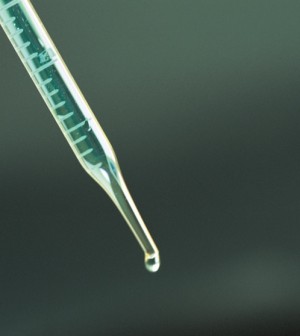- Could Your Grocery Store Meat Be Causing Recurring UTIs?
- Are You Making This Expensive Thermostat Error This Winter?
- Recognizing the Signs of Hypothyroidism
- 10 Strategies to Overcome Insomnia
- Could Artificial Sweeteners Be Aging the Brain Faster?
- Techniques for Soothing Your Nervous System
- Does the Water in Your House Smell Funny? Here’s Why
- Can a Daily Dose of Apple Cider Vinegar Actually Aid Weight Loss?
- 6 Health Beverages That Can Actually Spike Your Blood Sugar
- Treatment Options for Social Anxiety Disorder
Health Highlights: Dec. 20, 2016

Here are some of the latest health and medical news developments, compiled by the editors of HealthDay:
New Prostate Cancer Therapy Works Without Severe Side Effects
A new treatment for early stage prostate cancer is “transformative,” according to researchers.
The therapy features lasers and a drug made from deep sea bacteria, and does not cause severe side effects, BBC News reported.
A clinical trial of 413 prostate cancer patients at 47 hospitals across Europe found that 49 percent had no remaining trace of cancer after undergoing the treatment. Only six percent of those who had the treatment had to undergo prostate removal, compared with 30 percent who did not have the new therapy.
Many prostate cancer patients who have surgery or radiation therapy have lifelong impotence and urinary incontinence. But sexual and urination problems lasted no longer than three months among patients who had the new therapy, according to the study in The Lancet Oncology.
The drug used in the treatment is made from bacteria that live in near total darkness on the ocean floor and become toxic only when exposed to light. Ten fiber optic lasers are inserted into the prostate. When switched on, the laser activates the drug to kill the cancer without harming the prostate, BBC News reported.
The new therapy could be as important an advance for prostate cancer patients as the shift from removing the whole breast to just the lump in women with breast cancer, according to Professor Mark Emberton, who tested the technique at University College London.
“This changes everything,” he told BBC News.
“Traditionally the decision to have treatment has always been a balance of benefits and harms,” he noted. “The harms have always been the side effects — urinary incontinence and sexual difficulties in the majority of men.”
“To have a new treatment now that we can administer, to men who are eligible, that is virtually free of those side effects, is truly transformative,” Emberton said.
The new therapy has not been approved for use in patients.
There are other prostate cancer treatments, such as very focused ultrasound, that have a lower risk of side effects, but they are not universally available, BBC News reported.
Copyright © 2026 HealthDay. All rights reserved.










